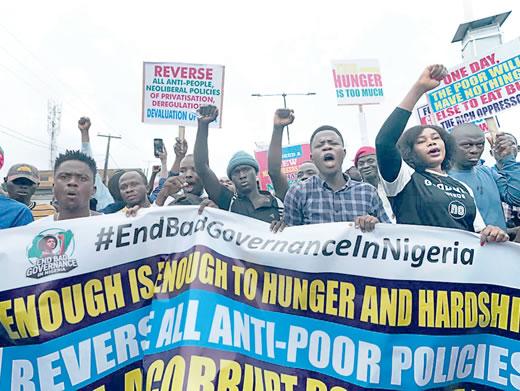President Bola Tinubu addressed the nation on August 4, 2024, calling for an end to the #EndBadGovernance protests that have swept across Nigeria since August 1. In his speech, Tinubu acknowledged the pain and frustration driving the demonstrations but defended his economic reforms, including the removal of fuel subsidies and currency devaluation, as necessary steps to reverse ‘decades of economic mismanagement’.The protests have taken a significant toll on the nation. Amnesty International reports at least 13 deaths since the demonstrations began, with most allegedly caused by police action. The economic impact has been severe, with losses estimated at N700 billion over just two days.Tinubu urged protesters to suspend their actions and engage in dialogue, saying, ‘I hereby enjoin protesters and the organisers to suspend any further protest and create room for dialogue, which I have always acceded to at the slightest opportunity’. He emphasized his commitment to good governance and addressing citizens’ concerns, stating, ‘I understand the pain and frustration that drive these protests, and I want to assure you that our government is committed to listening and addressing the concerns of our citizens’.However, the President ruled out reversing key policies such as the removal of fuel subsidies, a central demand of the protesters. Instead, he highlighted his administration’s efforts to stabilize the economy, improve infrastructure, and create opportunities for young people.The government’s response to the protests has evolved from initial attempts to prevent them to now calling for their suspension. Tinubu had earlier mobilized opinion leaders across the country to dissuade youth from taking to the streets. As the protests escalated, he warned against promoting unconstitutional agendas that could set back Nigeria’s democratic progress.As the situation remains tense, with the potential for further escalation, Tinubu’s call for dialogue and his refusal to reverse key economic policies set the stage for a critical juncture in Nigeria’s ongoing economic and political challenges.
Key points
- President Tinubu called for an end to #EndBadGovernance protests and urged dialogue.
- At least 13 deaths reported since protests began, with N700 billion in economic losses.
- Tinubu defended economic reforms, including fuel subsidy removal, as necessary.
- Government’s stance evolved from prevention attempts to calls for protest suspension.
Contradictions👾While Tinubu calls for dialogue and understanding, he remains firm on not reversing key economic policies that sparked the protests.
👾The government claims to respect the right to protest while simultaneously calling for an end to the demonstrations.


